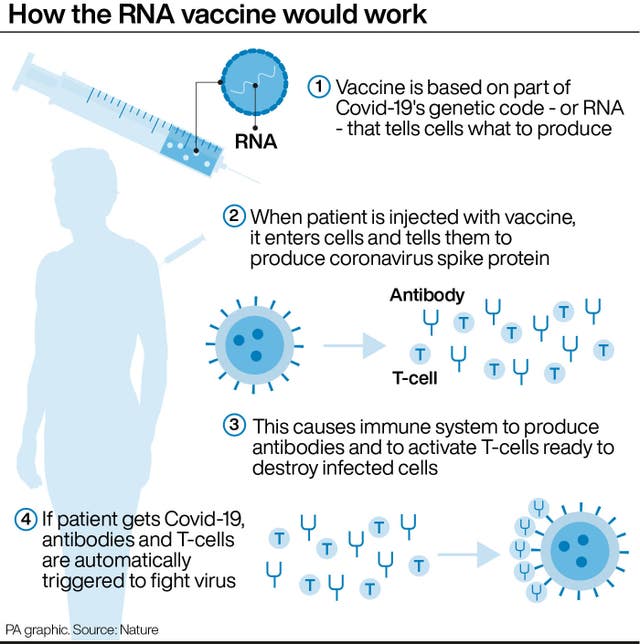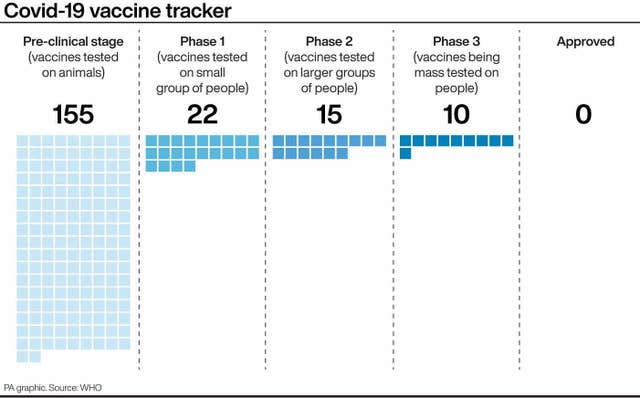Special shipping for Pfizer vaccine with remote temperature monitoring
The vaccine needs to be stored at -70C which prompted concerns about transport and storage.

The Pfizer vaccine is to be shipped in special storage containers which will keep it at ultra-low temperatures until it is ready to be administered.
Special GPS trackers will mean that the temperature of the Pfizer/BioNTech vaccine can be remotely monitored to ensure it stays at the correct heat to keep it effective.
Details of how the vaccine could be transported and stored have emerged following concerns that the NHS may face difficulties handling a vaccine which needs to be stored at -70C.
But Health Secretary Matt Hancock said he has “confidence” the NHS can deliver the vaccine, should it be granted regulatory approval, despite the logistics involved.
Pfizer has designed a suitcase-sized container that will keep the doses at -70C for up to 10 days using dry ice.
Each container holds around 1,000 doses
Each of the so-called “shippers” will be fitted with thermal sensors to enable the pharmaceutical giant to track the location and temperature of the frozen vaccine vials.
The thermal shipping systems can be recharged with dry ice if needed, Pfizer said.
Vaccines will be shipped by air and road, but not boat due to the time constraints.
And once the vaccine has been transported it can be stored in a fridge for up to five days at 2-8C – which is entirely feasible in a standard medicine fridge at a GP practice.

Earlier Mr Hancock said that rolling out a Covid vaccine to the masses could pose a “mammoth logistical operation”.
Mr Hancock told the House of Commons: “Cold chain requirements are significant and do add to the logistical complications, but we have known about that cold chain requirement for many months now so it’s been part of our planning for some time.
“And so we have a good degree of confidence that that will be in place.”
And a senior government adviser said he was “very confident” there is robust storage available.
Mr Hancock also said that from the moment the vaccine leaves the factory in Belgium it can only be taken out of minus 70C four times before it is injected into a patient’s arm.

“It is a mammoth logistical operation which the NHS is leading,” the minister said.
A Department of Health and Social Care spokeswoman said: “The NHS has vast experience delivering widespread vaccination programmes and an enormous amount of planning has taken place to ensure our health service stands ready to roll out a Covid-19 vaccine.
“This includes putting in place logistical expertise, transport, personal protective equipment and an expanded workforce to ensure we can deploy vaccines rapidly once they have met robust standards on safety and effectiveness and been approved by the medicines regulator.
“We will publish further details on our deployment plans in due course.”





